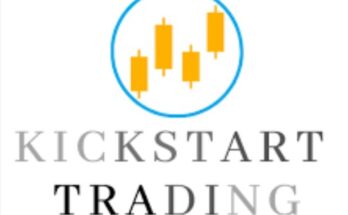Title: The Dynamic Dance: The Role of News and Events in Trading
Introduction:
In the ever-changing landscape of financial markets, news and events play a pivotal role in shaping market sentiment, influencing investor decisions, and driving volatility. Traders navigate a complex web of information, reacting to breaking news and events that can cause rapid shifts in asset prices. In this article, we will delve into the multifaceted impact of news and events on trading, exploring how market participants analyze, interpret, and respond to the constant flow of information.
- Market Reaction to Economic Indicators: Economic indicators, such as employment reports, GDP releases, and inflation data, serve as vital markers of a country’s economic health. Traders closely monitor these indicators, as unexpected results can trigger significant market movements. Positive economic data can boost investor confidence, leading to increased demand for riskier assets like stocks. Conversely, negative data may lead to a flight to safety, with investors flocking to more secure investments such as bonds or gold.
- Central Bank Announcements: Statements and decisions made by central banks wield considerable influence over financial markets. Interest rate changes, monetary policy shifts, and forward guidance provided by central banks can spark volatility in currency markets and impact the prices of bonds and equities. Traders scrutinize central bank communications for clues about future policy directions, adjusting their strategies accordingly to capitalize on potential market movements.
- Geopolitical Events: Geopolitical events, ranging from political instability and conflicts to trade disputes, can send shockwaves through financial markets. Traders often react to geopolitical developments by reassessing risk and reallocating assets. For example, an escalation in a trade dispute between major economies may lead to heightened market volatility and impact the performance of multinational corporations.
- Earnings Reports: Corporate earnings reports are key drivers of individual stock prices. Positive earnings surprises can lead to a surge in a company’s stock, while disappointments may result in sharp declines. Traders often use earnings season as an opportunity to capitalize on short-term price movements, adjusting their positions based on the revealed financial performance of companies.
- Technological Advances and Algorithmic Trading: In the era of rapid information dissemination, technological advances and algorithmic trading have revolutionized how news impacts markets. Algorithms can process news headlines, social media sentiments, and economic data at lightning speed, executing trades in fractions of a second. This has led to increased market efficiency but also to instances of flash crashes and heightened volatility, as algorithms respond to news with swift and sometimes unpredictable reactions.
- Event Risk and Black Swan Events: Traders must contend with the concept of event risk – unexpected and extreme occurrences that can have profound impacts on financial markets. Black Swan events, rare and unpredictable incidents with severe consequences, can catch traders off guard. Events such as natural disasters, financial crises, or global pandemics can lead to rapid market sell-offs or unexpected rallies, testing the resilience of trading strategies.
- Information Overload and Behavioral Biases: The influx of information in today’s interconnected world can sometimes lead to information overload. Traders must navigate through a barrage of news, distinguishing between noise and critical developments. Additionally, behavioral biases, such as fear and greed, can influence decision-making during times of heightened market uncertainty. Successful traders develop strategies to manage information overload and mitigate the impact of emotional biases.
Conclusion:
News and events are the lifeblood of financial markets, shaping the ebb and flow of asset prices. Traders must remain vigilant, staying abreast of economic indicators, central bank actions, geopolitical events, and corporate developments. While news can present opportunities, it also poses risks, requiring traders to employ robust risk management strategies. Navigating the dynamic dance between information and market reaction is a skill that sets successful traders apart in the ever-evolving world of finance.



